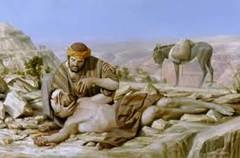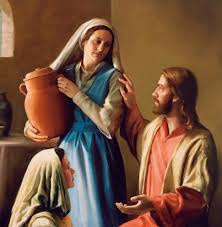October 1 to October 9 - abbey
Main menu:
- Home Page
- Abbey
- Apiary
- Documents
- Monastic
- Spirituality
- Apostleship of the Sea
- Homilies of Pope Francis
October 1 to October 9
Spirit of humility, of tenderness, of bounty Pope Francis concelebrated Mass Tuesday, October 1, morning at the Casa Santa Marta with members of the Council of Cardinals. The Holy Father met with the group of Cardinals from October 1 to 3, 2013. In his homily, the Pope expressed his hope that the meeting would help everyone become more humble and more trusting in God, so that the Church might be able to give a beautiful witness to the people.
Pope Francis concelebrated Mass Tuesday, October 1, morning at the Casa Santa Marta with members of the Council of Cardinals. The Holy Father met with the group of Cardinals from October 1 to 3, 2013. In his homily, the Pope expressed his hope that the meeting would help everyone become more humble and more trusting in God, so that the Church might be able to give a beautiful witness to the people.
In the day’s readings, Jesus rebuked the two Apostles that wanted to call down fire from heaven upon those who would not accept them. Pope Francis pointed out that the way of the Christian is not a “path of vengeance.” The way of the Christian is the way of humility, of meekness. He added that today, on the feast of Saint Therese of the Child Jesus, it would be good for us to think about “this spirit of humility, of tenderness, of bounty.” It is a spirit, that the Lord wants from all of us. Where, then, is the power that brings us to this spirit? It is found in love, in charity, in the awareness that we are in the hands of the Father. When we sense this, the Pope observed, we will not want to call down ‘fire from Heaven’.
Another spirit comes, that of that charity that suffers all, pardons all, that does not boast, that is humble, that doesn’t seek itself. Someone could say -
The Church, Benedict XVI told us, does not grow through proselytism, it grows through attraction, through witness. And when the people see this witness of humility, of meekness, of mildness, they feel the need that the Prophet Zachariah spoke of: ‘We want to come with you.’ The people feel that need in the face of the witness of charity, of this humble charity, without bullying, not sufficient, humble. Worship and serve!
Charity is simple: worship God and serve others! And this witness makes the Church grown. That’s why a nun, so humble, but so trusting in God, a nun like St. Therese of the Child Jesus was named Patron of the Mission, because of her example which makes the people say: we want to come with you!
Today, here in the Vatican, begins the meeting with the Cardinal consulters, who are concelebrating the Mass. Let us ask the Lord that our work today will make us all more humble, more meek, more patient, more trusting in God, so that the Church can give a beautiful witness to the people, and seeing the People of God, seeing the Church, they might feel the desire to come with us.
The joy of the nearness of memory
“When God comes near to us, there is feasting.” This was a central focus of Pope Francis’ remarks following the readings at Mass on Thursday October 3, together with the Council of 8 Cardinals who met at the Vatican. Pope Francis spoke of the need to resist transforming our memory of salvation into a mere recollection or an ‘habitual event’. Ezra’s reading from the Book of the Law – which was believed lost, as recoded in the first Reading of the day from the Book of Nehemiah – occasioned the Holy Father’s reflections. “The People of God, had the memory of the Law, but it was a distant memory. The recovery of the Law brought them, because they had the experience of closeness of salvation. This is important not only in the great moments in history, but also in the moments of our life: we all have the memory of salvation, everyone. I wonder, though: is this memory close to us, or is it a memory a bit far away, spread a little thin, a bit archaic, a little like a museum [piece]… it can get far away [from us]… and when the memory is not close, when we do not experience the closeness of memory, it enters into a process of transformation, and the memory becomes a mere recollection.
Ezra’s reading from the Book of the Law – which was believed lost, as recoded in the first Reading of the day from the Book of Nehemiah – occasioned the Holy Father’s reflections. “The People of God, had the memory of the Law, but it was a distant memory. The recovery of the Law brought them, because they had the experience of closeness of salvation. This is important not only in the great moments in history, but also in the moments of our life: we all have the memory of salvation, everyone. I wonder, though: is this memory close to us, or is it a memory a bit far away, spread a little thin, a bit archaic, a little like a museum [piece]… it can get far away [from us]… and when the memory is not close, when we do not experience the closeness of memory, it enters into a process of transformation, and the memory becomes a mere recollection.
When memory is distant, it is transformed into recollection, but when it comes near, it turns into joy, and this is the joy of the people. This, constitutes a principle of our Christian life. When memory is already close, it warms the heart and gives us joy. This joy is our strength. The joy of the nearness of memory. Domesticated memory, on the other hand, which moves away and becomes a mere recollection, does not warm the heart. It gives us neither joy nor strength. This encounter with memory is an event of salvation, it is an encounter with the love of God that has made history with us and saved us. It is a meeting of salvation -
The Church, has [Christ’s] memory: the ‘memory of the Passion of the Lord.’ We too, run the risk of pushing this memory away, turning it into a mere recollection, in a rote exercise. Every week we go to church, or rather when someone dies, we go to the funeral … and this memory often times bores us, because it is not near. It is sad, but the Mass is often turned into a social event and we are not close to the memory of the Church, which is the presence of the Lord before us. Imagine this beautiful scene in the Book of Nehemiah: Ezra who carries the Book of Israel’s memory and the people once again grow near to their memory and weep, the heart is warmed, is joyful, it feels that the joy of the Lord is its strength – and the people makes a feast, without fear, simply.”
Let us ask the Lord, for the grace to always have His memory close to us, a memory close and not domesticated by habit, by so many things, and pushed away into mere recollection. (Video)
Listen to what God is telling you
“Open up your heart and listen to what God is saying to you. Allow your life to be ‘written’ by God. Just as the Good Samaritan did when he stopped to help the stranger, we must all listen to God’s voice and sometimes put our own projects on hold to do his will.” Speaking to those present for morning Mass on Monday, October 7, Pope Francis pointed out that it can happen that Christians, Catholics, priests. Bishops and even the Pope sometimes turn away from God! Not to listen to his voice, not to take heed in our hearts of his proposal and his invitation– the Pope said – is a daily temptation. And there are many ways in which one can turn away from God, polite, sophisticated ways… And to better illustrate his message, Pope Francis recalled the parable recounted in the Gospel in which there is a half-
Not to listen to his voice, not to take heed in our hearts of his proposal and his invitation– the Pope said – is a daily temptation. And there are many ways in which one can turn away from God, polite, sophisticated ways… And to better illustrate his message, Pope Francis recalled the parable recounted in the Gospel in which there is a half-
Then a Levite passes by and perhaps he thinks “If I get involved and the man dies, then tomorrow I will have to go before the judge and give testimony…” so he too goes on his way. He too turns away from the voice of God.
Only the Samaritan, a sinner, someone who habitually turns away from God had the capacity to hear God and to understand his request. Someone who wasn’t used to participating in religious rites, who didn’t lead a ‘moral’ life, who was theologically ‘wrong’, because Samaritans believed that God should be adored elsewhere, not where the Lord had said. But the Samaritan understood that God was calling him and he did not turn away. He went to the man, bound up his wounds, poured on oil and wine. He set him on his own animal, brought him to an inn and took care of him. He gave up his whole evening for him.
Meanwhile, the priest was on time for Mass and the faithful were happy; the Levite’s schedule was not upset…. “why did Jonah run away from God when the Lord asked him to go to Ninevah and he boarded a ship to Spain? Why did the priest turn away from God? Why did the Levite turn away from God? Because their hearts were closed, and when your heart is closed you cannot hear the voice of God. Instead the Samaritan -
Those who have a design for their lives, who want to map out their own stories – do not allow God to write their lives. I say to myself, and I say to you: do we let God write our lives? Or do we want to do the writing ourselves? And Pope Francis exhorted those listening “to be docile to the Word of God. To have the capacity to hear His voice and to listen to it.
Prayer opens the door for God
In his homily at daily Mass on Tuesday, October 8, Pope Francis explained that a Christian is a person who has a heart that knows how to pray and knows how to forgive. The Gospel of the day was dedicated to the story of Saint Martha, the titular saint of his residence. The Pope took the Gospel story as the starting point, reminding us that prayer works miracles” as long as it is not a purely mechanical act. The very human figures of Saint Martha, from the New Testament, and the Prophet Jonah of the Old, the central characters of the day’s readings, are united by a common incapacity: they did not know to pray. Pope Francis built his homily on this aspect, beginning with the famous scene in the Gospel where Martha asks Jesus, in an almost critical tone, to have her sister to help her do the serving, rather than sitting at His feet listening to Him. Jesus replied, “Mary has chosen the better part.” This part, is that of prayer, that of the contemplation of Jesus.
The very human figures of Saint Martha, from the New Testament, and the Prophet Jonah of the Old, the central characters of the day’s readings, are united by a common incapacity: they did not know to pray. Pope Francis built his homily on this aspect, beginning with the famous scene in the Gospel where Martha asks Jesus, in an almost critical tone, to have her sister to help her do the serving, rather than sitting at His feet listening to Him. Jesus replied, “Mary has chosen the better part.” This part, is that of prayer, that of the contemplation of Jesus.
To the eyes of the sister, this was time lost, it even seemed, perhaps, a bit of a fantasy: gazing upon the Lord as if she were a awestruck child. But who wants that? The Lord: ‘This is the better part,’ because Mary heard the Lord and prayed with her heart. And the Lord tells us: ‘the first task in life is this: prayer.’ But not the prayer of words, like a parrot; but the prayer, the heart: gazing on the Lord, hearing the Lord, asking the Lord. We know that prayer works miracles.
And prayer produces a miracle even in the ancient city of Niniveh. Jonah, on God’s instructions, had preached the imminent destruction of the city; the city, though, was saved because the inhabitants, believing the prophet, were converted, and from the greatest to the least called upon the divine forgiveness with all their strength. However, even in this story of redemption, Jonah had an erroneous attitude. He was more disposed to justice without mercy. His attitude was similar to Martha’s, inclining to service that excludes interiority.
And Martha does this. Does what? But she didn’t pray! But there are others like this stubborn Jonah, who are executioners. He went, he prophesied, but in his heart he said: ‘But they deserve it. If they deserve it, they were asking for it!’ He prophesied, but he didn’t pray! He didn’t ask the Lord to forgive Them. Only to punish them… They are executioners, those that believe themselves to be just! And in the end, the book of Jonah continues, it is seen that he was a selfish man, when the Lord saved Nineveh through the prayer of the people, he was angry with the Lord: “You are always like that. You always forgive!”
And so, prayer that is only a formula, without heart, as well as pessimism or the desire for justice without forgiveness, are the temptations a Christian must always guard against in order to be able to choose ‘the better part.’ And we ourselves, when we don’t pray, what we’re doing is closing the door to the Lord. And not praying is this: closing the door to the Lord, so that He can do nothing. On the other hand, prayer, in the face of a problem, a difficult situation, a calamity, is opening the door to the Lord so that He will come. So that He builds things, He knows to arrange things, to reorganize things. This is what praying is: opening the door to the Lord, so that he can do something. But if we close the door, God can do nothing! Let us think on this Mary who has chosen the better part, and makes us see the way, as the door is opened to the Lord.